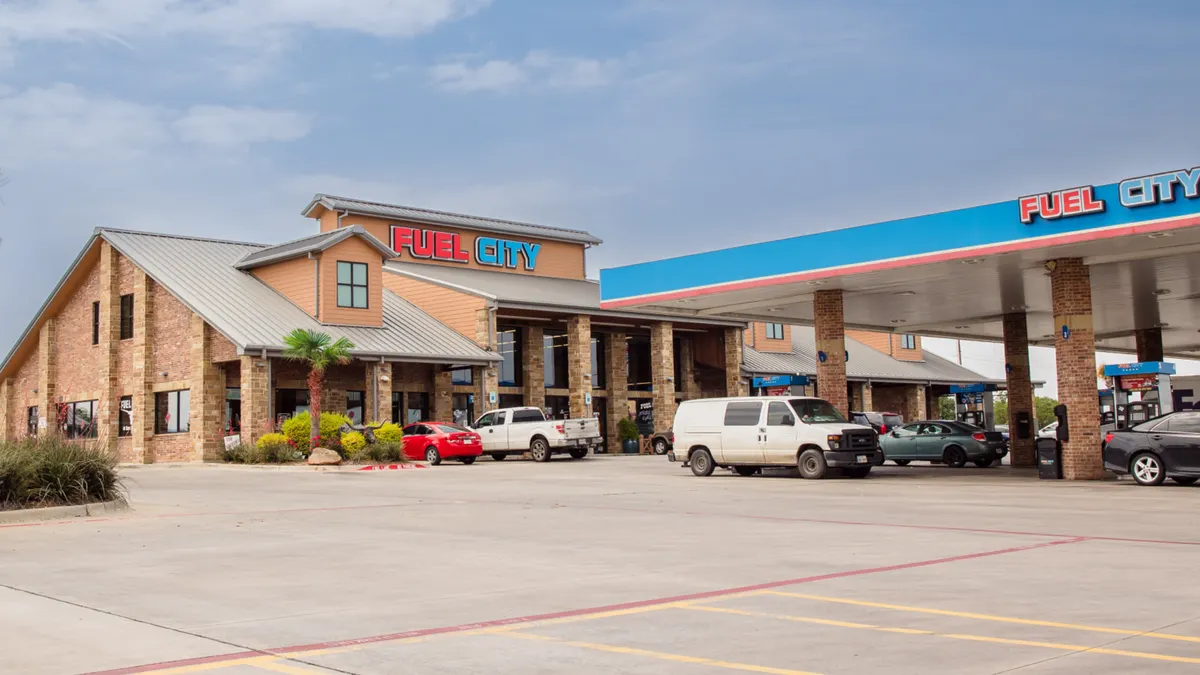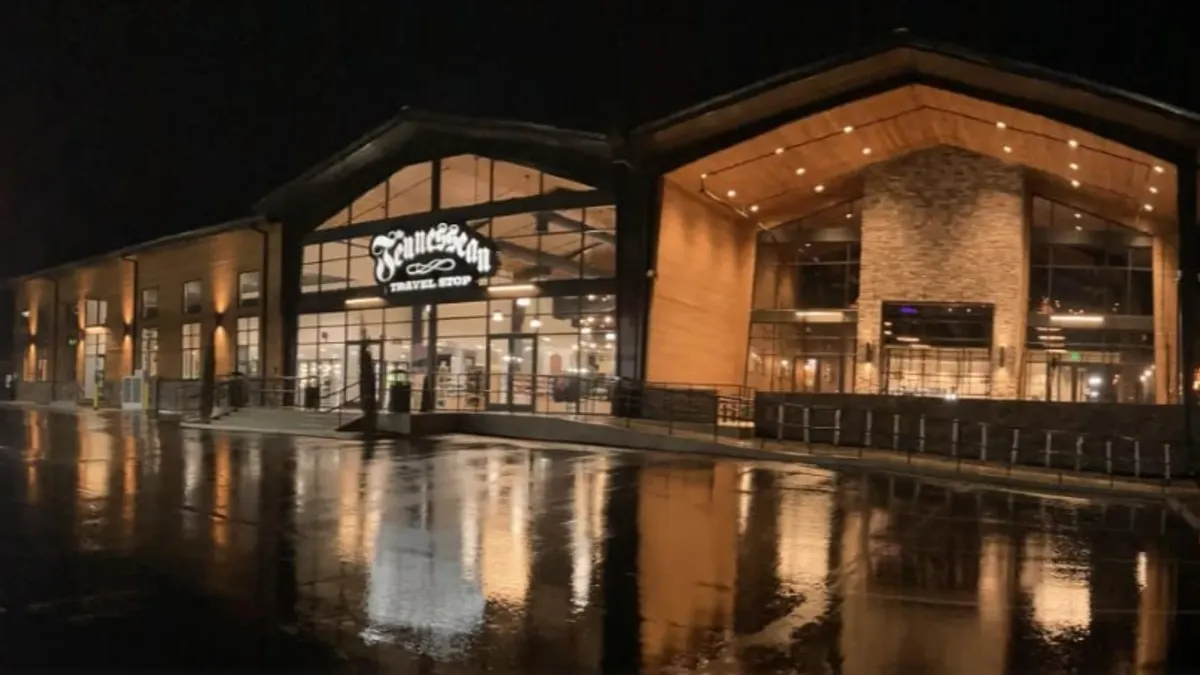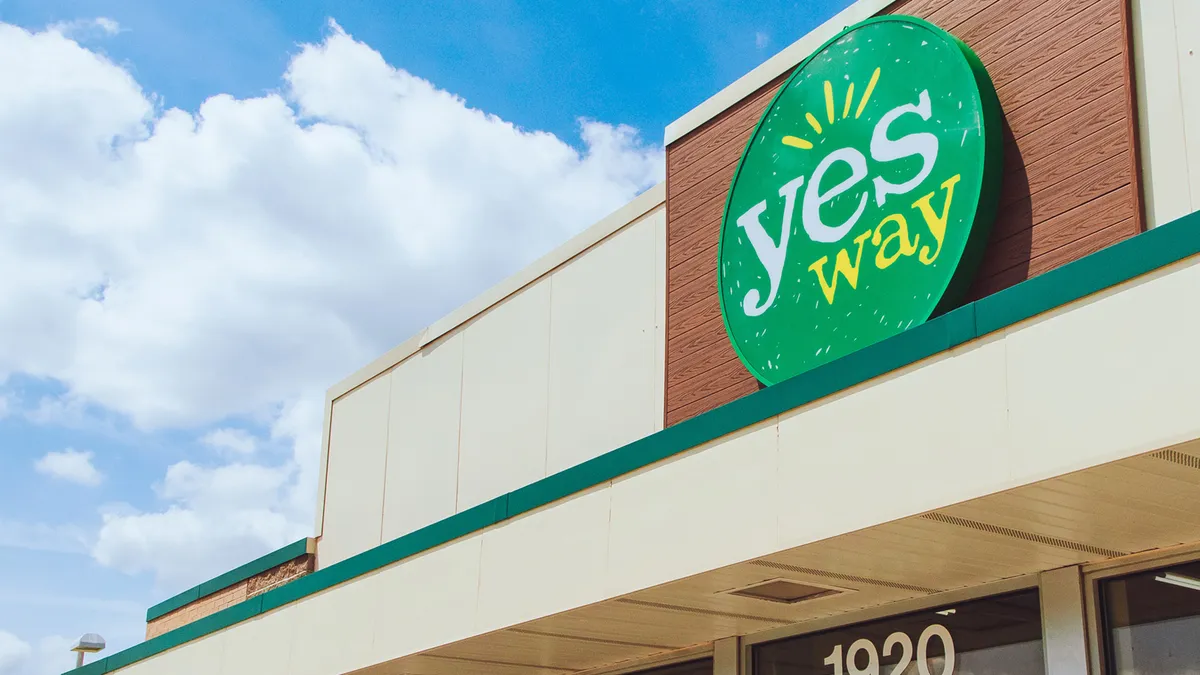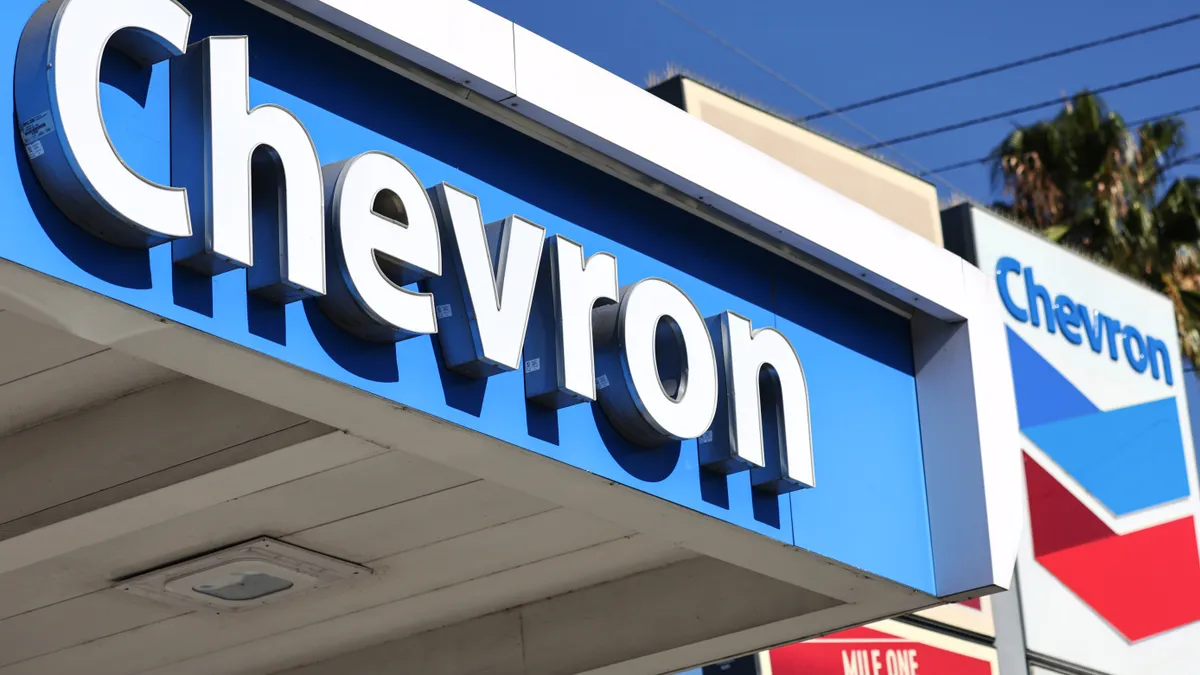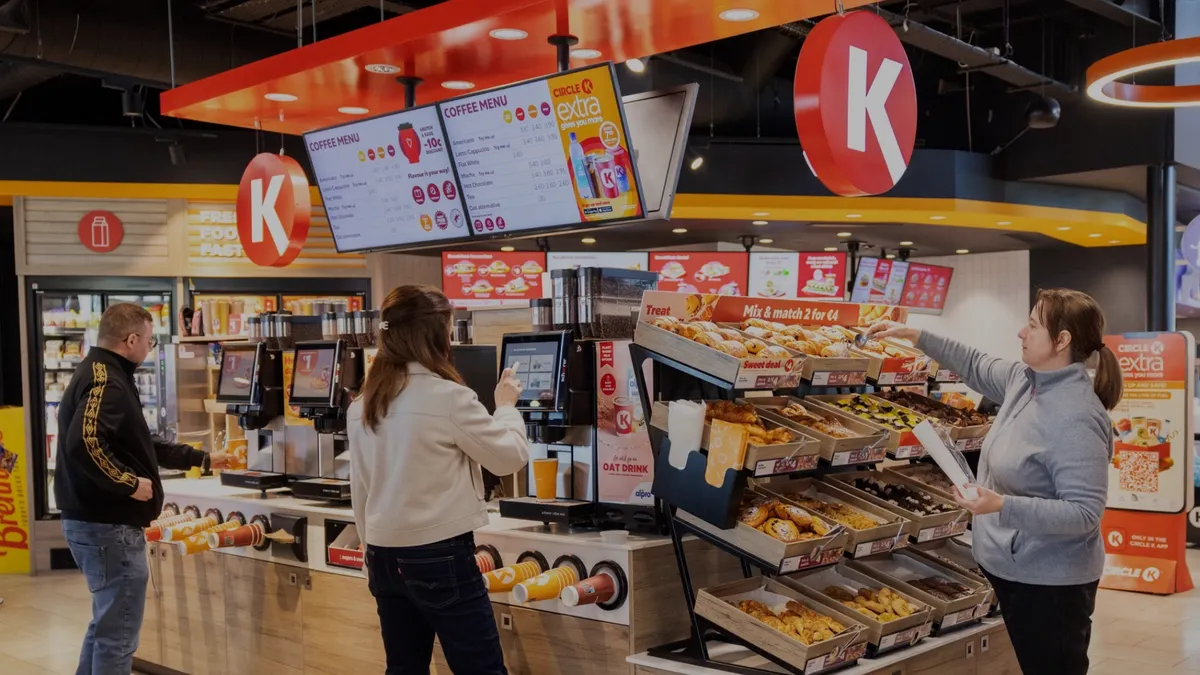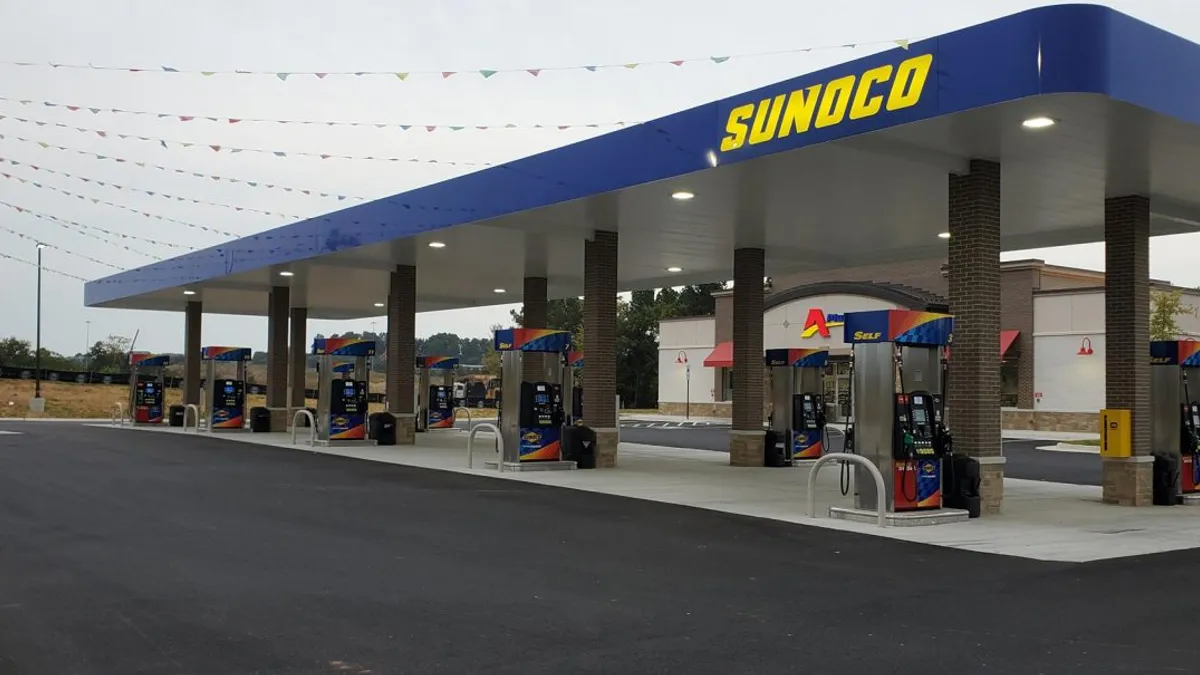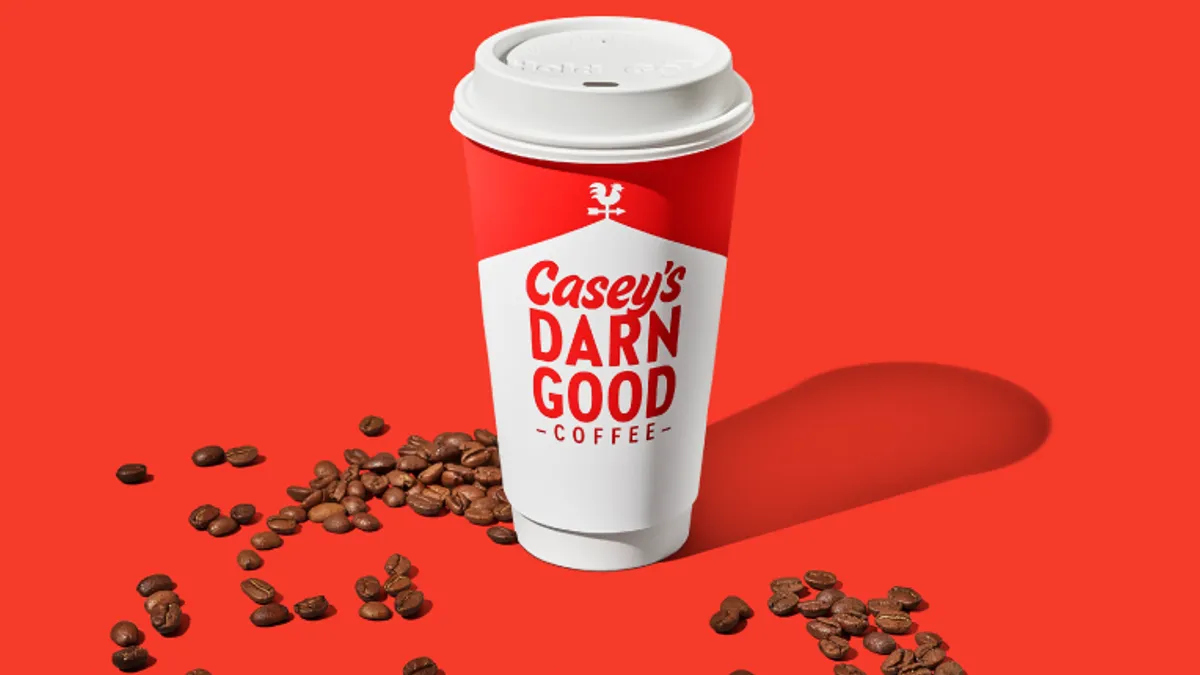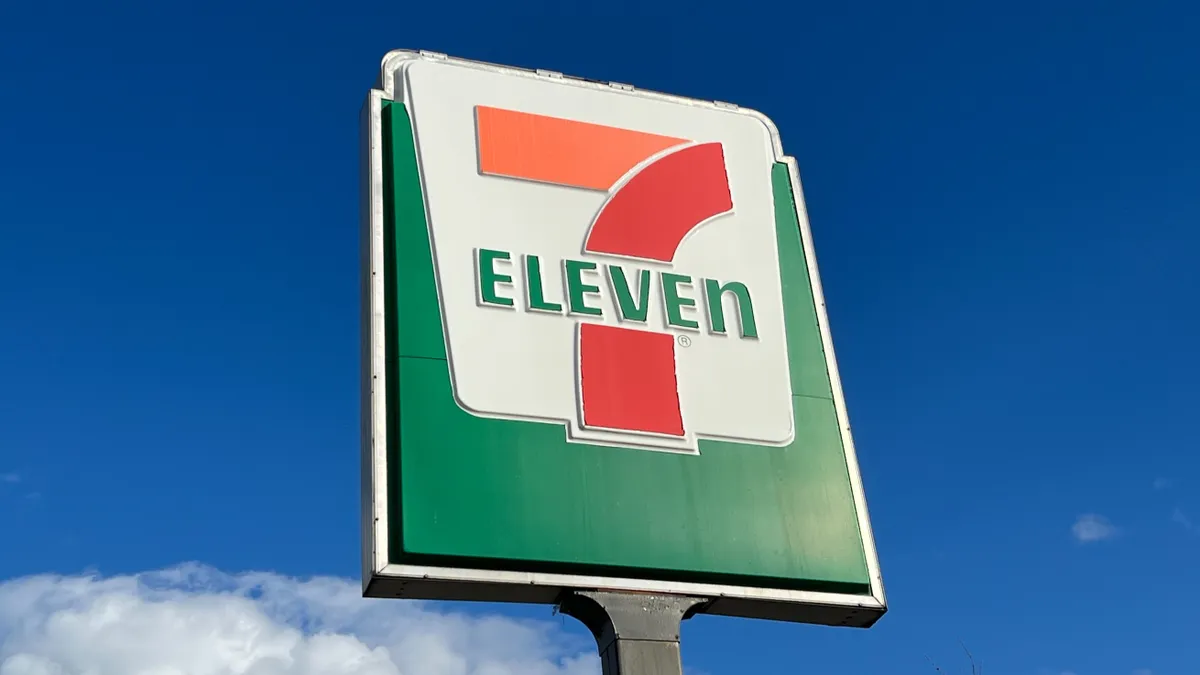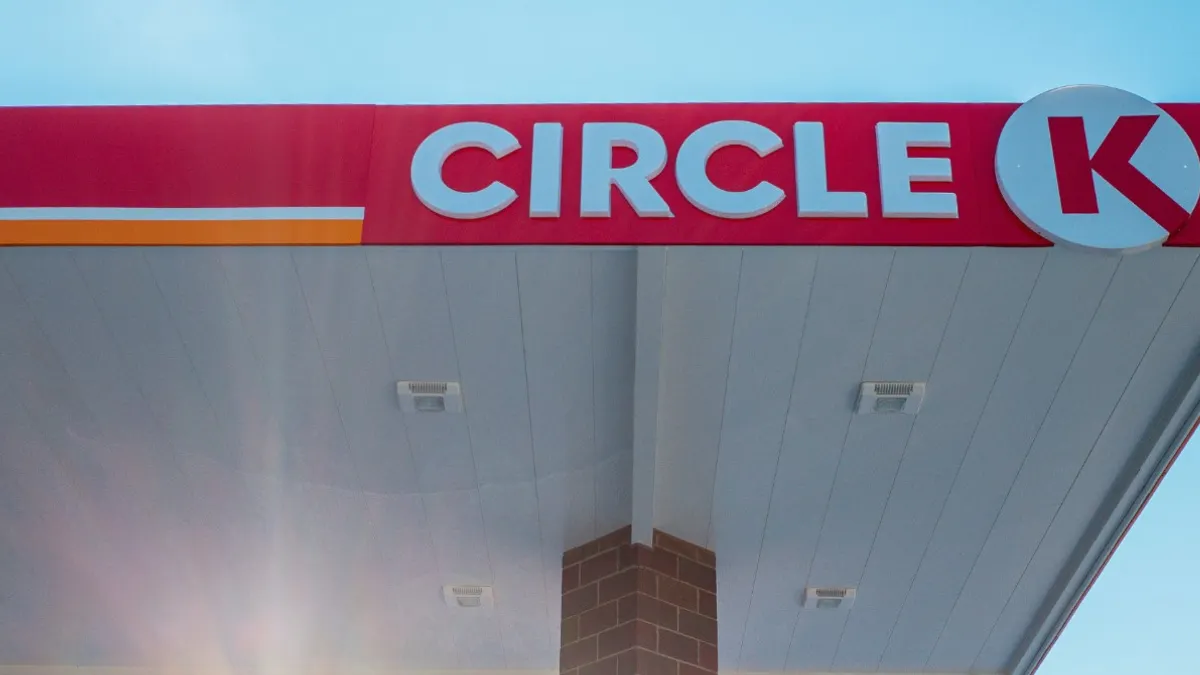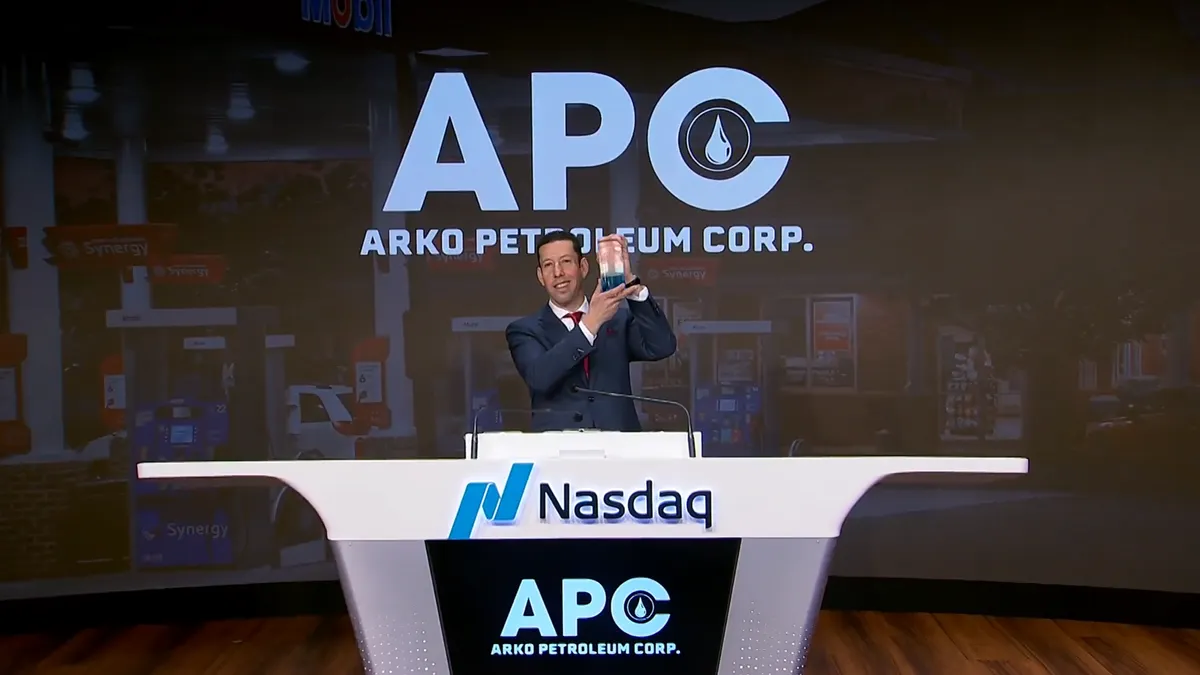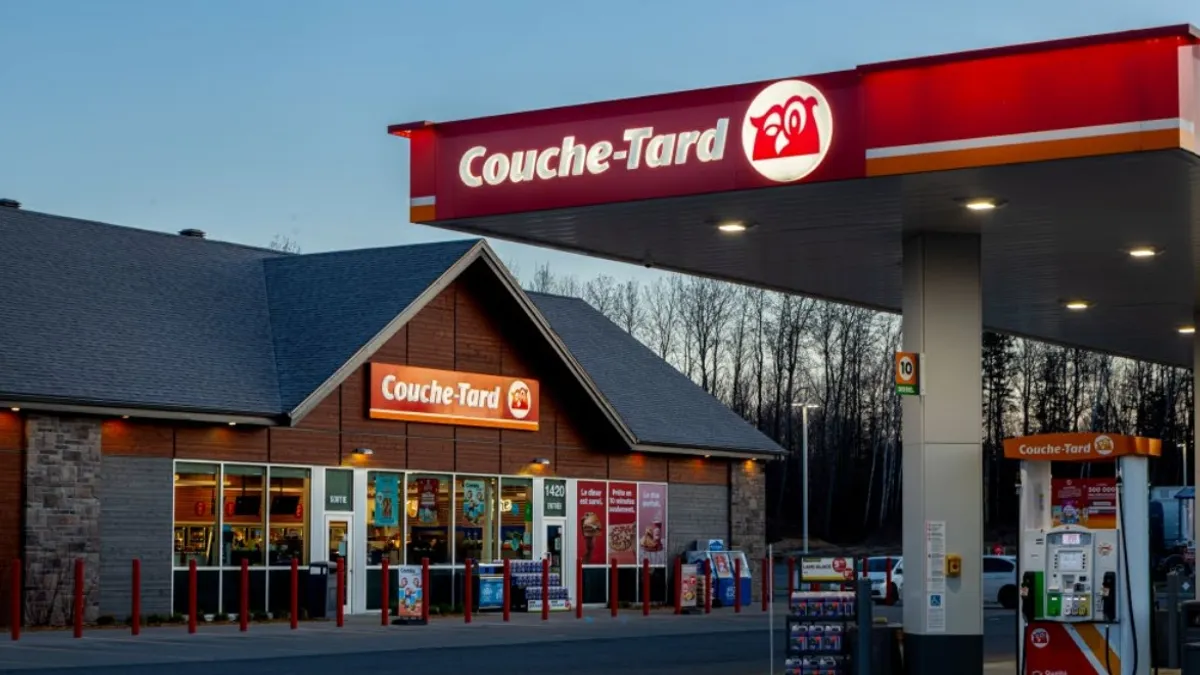A trio of retail fueling stations shares the intersection of Blue Mound Road and East Industrial Avenue on the north side of Fort Worth, Texas. Passers-by may be familiar with two of these banners — Circle K and QuikTrip. The third, a 14,000-square-foot Fuel City truckstop, might not have name recognition, but will draw attention with the two life-size steel buffaloes welcoming visitors into the parking lot.
The Fuel City about 10 miles south in Haltom City goes a step further. Those buffaloes aren’t just statues — they’re live animals wandering around the acre-and-a-half farm outside the convenience store.
“If you're just driving by and you don't even come in, we want you to be like, ‘Wow, that place looks cool,’” said Fuel City CEO and owner Joseph Bickham.
Fuel City has seven locations in the Dallas-Fort Worth area. The average site is about 10,000 square feet and has about 20 fueling positions in the forecourt, while the properties span up to 20 acres. Although the company was founded in 1995 by Bickham’s father in law, six of the seven sites have opened since 2015, and Bickham said he’s hoping to break ground on the eighth Fuel City by the end of this year.
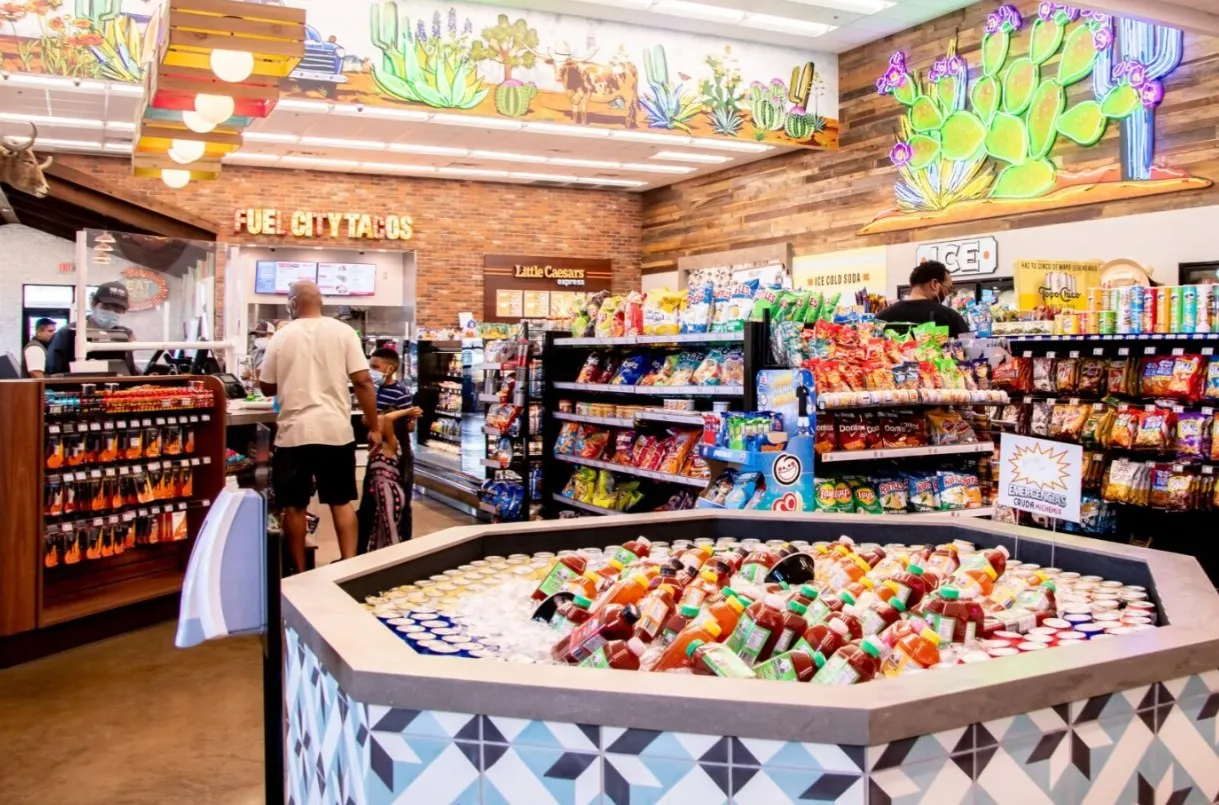
Rising operating costs and labor headaches have made it harder than ever for small convenience retailers to stay in business. Chains of less than 50 stores are being acquired regularly by large competitors, who know these businesses — many of which have been family owned for generations — are struggling to stay afloat.
That’s why Fuel City strives to be much more than a spot to grab gas and smokes.
“There's not a lot of edge in product offering or services that you can take and keep without getting some competition — even if you're out in front of a new idea, it's not too long before you're joined by others,” Bickham said. “And so how we differentiate is [through] the experience.”
Tacos, daiquiris and weddings
Food is a major focus and point of differentiation at every Fuel City, with the company’s made-to-order taco program leading the way. Selections include beef, barbacoa, picadillo, chicken fajita and pastor, as well as nopales, made from cactus. Customers can also order breakfast tacos, burritos, quesadillas and nachos along with sides such as homemade tortilla chips with salsa and guacamole.
Every Fuel City offers the taco program, while one site also has the chain’s proprietary burger and milkshake menu and another features its Sub Shop sandwich line. With the latter, customers can build their own made-to-order subs, or select from a group of favorites, such as The Monster, a combination of turkey, ham, salami, pepperoni and roast beef. Two locations also offer vanilla and pineapple ice cream, and five sites feature a Little Caesar’s Express QSR.
Fuel City’s unique foodservice goes beyond the food. Four of its seven locations have a bar inside the store, where customers can order from a selection of about 20 craft beers on tap and over a dozen homemade wine-based daiquiris.
Customers can purchase these items inside the store or via drive-thrus, Bickham said. They can also eat at the indoor and outdoor patio at each location, which features several high-top tables and chairs as well as multiple televisions, background music and private restrooms.
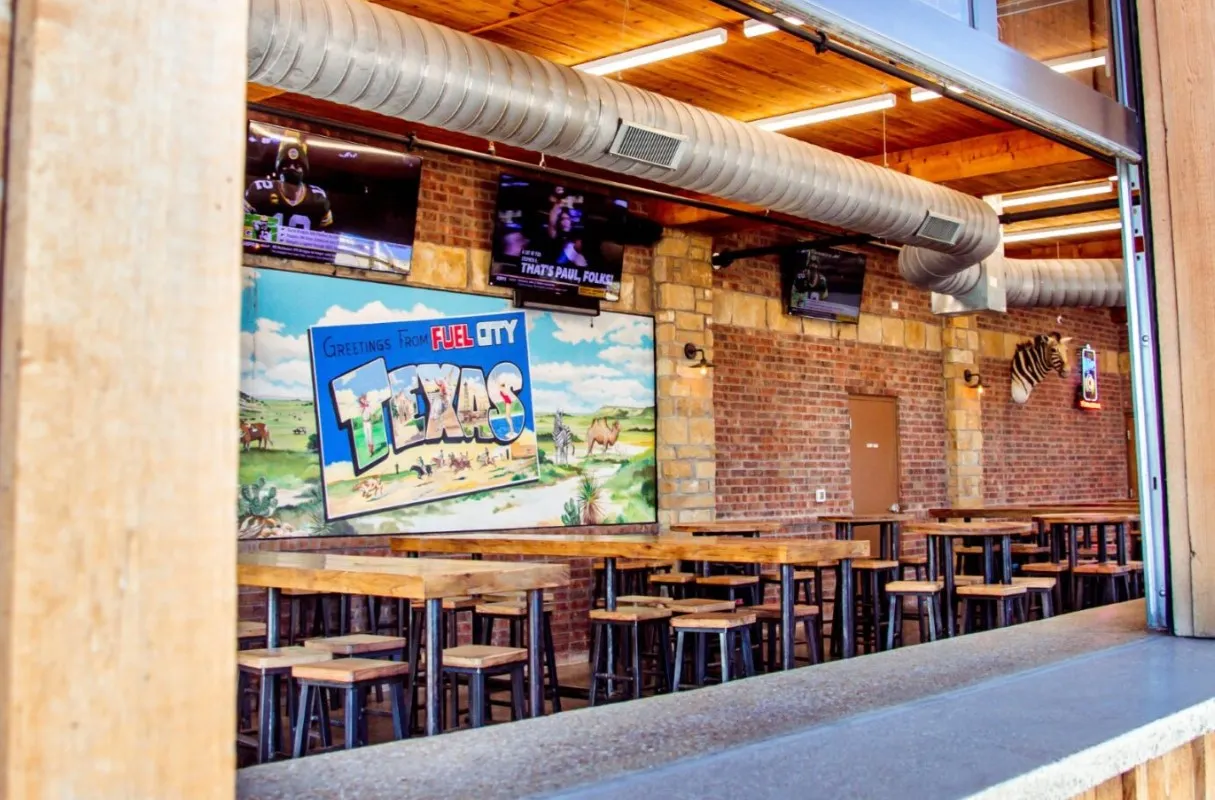
As another revenue generator, Fuel City lets patrons rent these patios out for private events, such as birthday parties and corporate gatherings. Bickham once even scheduled a wedding, although it didn’t end up happening for undisclosed reasons.
“We don't want to just be grab-and-go,” Bickham said. “We want to be convenient, but we also want to be a destination…. a place that you want to go and hang out.”
Buffaloes, zebras and zonkeys
So, about those buffaloes.
Bickham and his team have animal farms at two Fuel City locations. Both farms sit on about an acre-and-a-half of land, and Bickham employs team members who, in addition to handling the car washes, manage daily operations at the farm. Bickham also has a veterinarian on call who conducts regular checkups.
Customers visiting these stores can check out the variety of animals, such as buffaloes, camels, longhorns, zebras and a zonkey — a mix between a donkey and a zebra. Fuel City founder John Benda has a ranch in Eureka, Texas, that supplies the animals, Bickham said.

Although the farms make site selection tricky, especially near a city as large as Dallas, they’ve become a major differentiator for Fuel City, Bickham said.
“We really are trying to create an extraordinary experience out of this very ordinary business of going in and filling up your car,” Bickham said. “The animals are just part of that.”
Fuel City intends to keep expanding within Texas, Bickham said. He acknowledged that even though c-store M&A is “attractive” and “interesting,” Fuel City prefers to grow through new builds, since all of its sites must have the brand’s unique identity, layout and assortment. He said Fuel City’s high capital investment for each store is a selling point for cities it’s pitching.
With all of its infrastructure, such as its wholesale segment and food distribution center, solely in Dallas-Forth Worth, Fuel City is, at the moment, focused on growing within its home region.
“We have a lot of requests for folks to franchise or do different things, or try to sell us land in other markets in Texas and certainly outside of Texas,” Bickham said. “But at this point, we're just not quite interested in doing that.”


